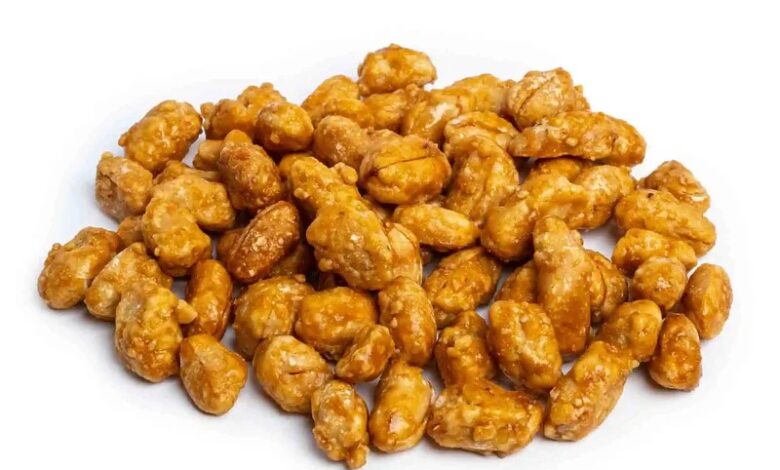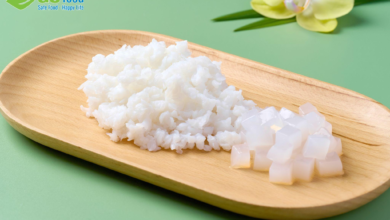The Top Nuts to Eat for Better Health

Nuts aren’t just delicious snacks, either — they’re little nutrient powerhouses. Full of healthy fats, protein, fibre, vitamins and minerals, even a small handful can satisfy food cravings and support your health.
So, experts say that eating nuts on a routine basis can reduce the risk of heart disease as well as many other illnesses. Craig Stubing, an exercise specialist at the University of Wisconsin School of Medicine and Public Health, says nuts, with their plant-based protein and “good” unsaturated fats, can be part of the formula for a sustainable, plant-rich diet.
Why Add Nuts to Your Diet?
Nuts are a healthy source of fibre, protein, vitamins (such as E and B-complex) and minerals (such as magnesium, potassium, zinc and selenium), and despite being fatty, they’re full of mostly the “good” fats and unsaturated fats.
Studies have revealed those who eat a small handful of nuts each day are far less prone to heart disease. That’s partly because nuts can reduce “bad” LDL cholesterol, blood pressure, and supply antioxidants that protect arteries.
Nutritionist Rohini Bajekal says, “Nuts take time to chew; the fibre and protein fill you up, and some fat resists digestion – so they actually provide fewer calories than you think.” All in all, integrating nuts into your diet is an easy way to substitute unhealthy snacks and get added nutrition.
Top Health Benefits of Nuts
Most nuts appear to be generally healthy, but some may have more healthy nutrients than others. Let’s take a deep dive into the benefits of each type of nut:
Almonds
Almonds really are all-rounders! Besides fibre and vitamin E, they contain super healthy monounsaturated fats that lay claim to being among the most nutritious of nuts. The daily serving of 30-gram almonds provides an ample portion of fibre and vitamin E.
These two work together to lower cholesterol levels among their antioxidant functions in protecting cells. Almonds also have the highest calcium content among all nuts, which is perfect for bone building.
Macadamia Nuts
Macadamia nuts are high in monounsaturated fats that increase the levels of good cholesterol. In other words, they are one of the richest sources of heart-healthy fats. Hence, possessing the nutrients such as thiamine (B1), magnesium, calcium, and potassium.
Cashew Nuts
Cashews contribute a fair amount of plant protein plus magnesium, zinc, and iron. These minerals are essential for muscle function, immunity, and cognitive health. In particular, magnesium supports nerve function and memory.
Cashews also provide vitamin K and other bone-building nutrients; hence, they are excellent for overall health, especially for vegetarians or vegans as a source of minerals and healthy fats.
Brazil nuts
Just one Brazil nut offers more than a daily dose of selenium, a powerful antioxidant mineral. Selenium provides support to thyroid function and promotes immune defence and wound healing.
Pistachios
A 30 g portion of pistachios offers potassium, roughly 6 g of protein, fibre and vitamins B1 and B6, all of which contribute to energy production, nerve function, and metabolism; they also contain plant sterols that counteract cholesterol. Research shows that the addition of pistachios to a healthy diet lowered blood pressure.
Walnuts
Walnuts possess more plant-based omega-3 (ALA) than any other nut. Polyunsaturated fats assist in reducing cholesterol and blood pressure.
Pecan
Pecans are rich, buttery nuts focused on dessert but are pretty healthy. Plant sterols in pecans help reduce cholesterol. They also contain oleic acid, which is beneficial for the heart (the same fatty acid found in olive oil).
Peanuts
Peanuts, technically legumes, behave nutritionally like nuts. They are high in plant protein and B vitamins such as niacin and folate that are crucial for energy and foetal development. Per ounce, peanuts have slightly fewer calories than tree nuts.
How to Enjoy More Nuts Every Day
Nuts are perfect to whip up a quick nutritious treat while enjoying their different flavours and textures. Consider munching on a handful of mixed nuts instead of potato chips – try Nuts Oasis trail mix. Use them on top of chopped nuts on oatmeal, yoghurt, or salads to give an instant nutrient boost.
Have some nut butter (almond or cashew) on toast or in smoothies and soups to make them creamy. Use nuts in homemade granola, baked goods, or stir-fries. Even coconut (a botanical fruit) qualifies for an occasional nut substitution.
Remember: just a light handful (about 30 g) is all you need to take full advantage without too much caloric intake.
Conclusion
Actually, nuts deserve their superfood reputation. Almonds for fibre and calcium, walnuts for omega-3s, pistachios for potassium, and Brazil nuts for selenium: each offers something healthy.
Consuming a handful of these nuts daily, in place of less nutritious snacks, promotes heart health and weight control and provides essential nutrients. Variety is best: mixing nuts yields a broad spectrum of vitamins, minerals, and healthy fats.
The next time you go shopping or snacking, remember the nuts’ power. Your pantry deserves to be well-stocked with premium nuts available at our shop of Nuts Oasis.
FAQs about Nuts
What nuts are good for you?
All of them are nutritious, so the best thing you can do is go in for variety. Different nuts provide different nutrients. Hence, mixing is a good idea. Almonds provide vitamin E and calcium; walnuts supply omega-3 fats, and Brazil nuts provide selenium.
What is the healthiest nut to eat for weight loss?
Pistachios and peanuts contain slightly fewer calories per serving compared to the rest of the nut family, while almonds and hazelnuts contain the least saturated fat. More importantly, nuts are one of the best food choices when it comes to aiding in weight-loss efforts because they promote a feeling of fullness.
What are the three most popular nuts?
Peanuts are the most consumed nut type globally, with almonds being the most popular tree nuts. Walnuts are also hanging out at the top of global consumption listings. In the United Kingdom, these nuts must probably also rank among the favourites: almonds, peanuts, and cashews.
Which nuts are least fattening?
Peanuts and pistachios have a bit less caloric content per ounce than others. Then you have the hazelnuts and almonds, which are the lowest in saturated fats.

